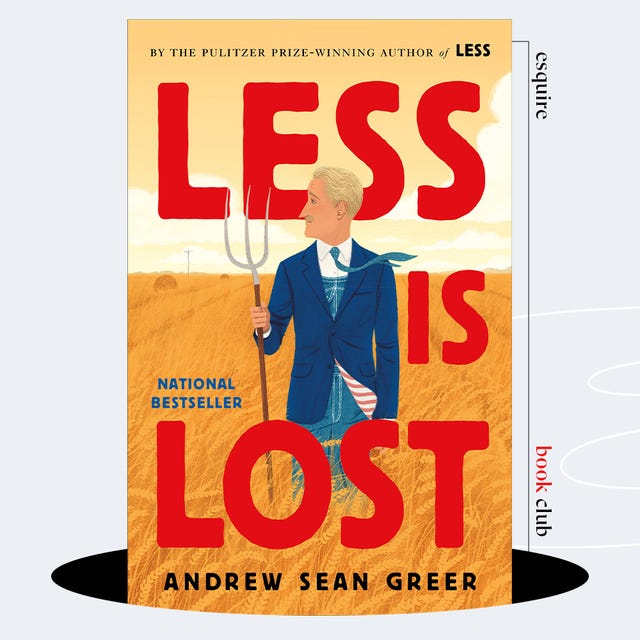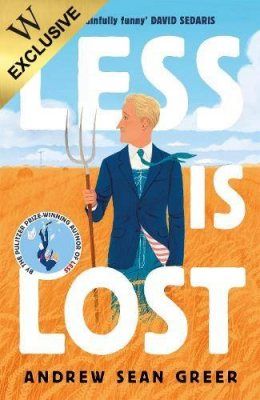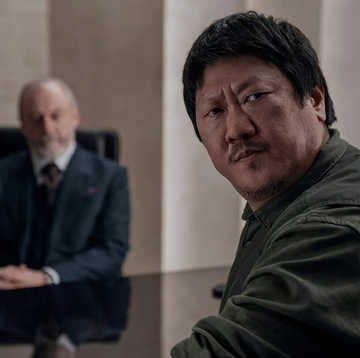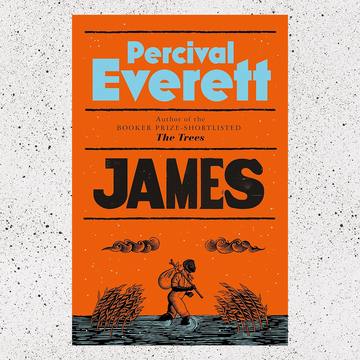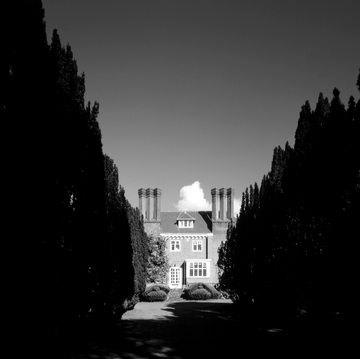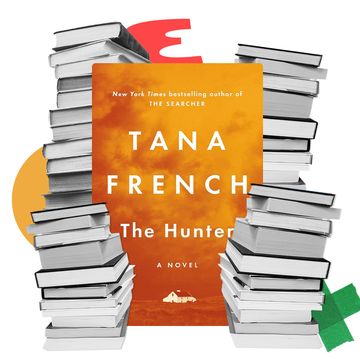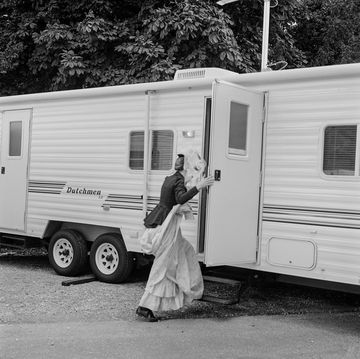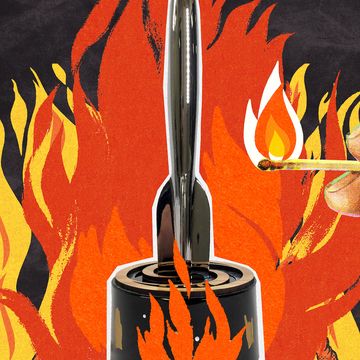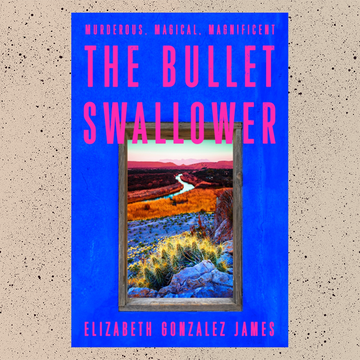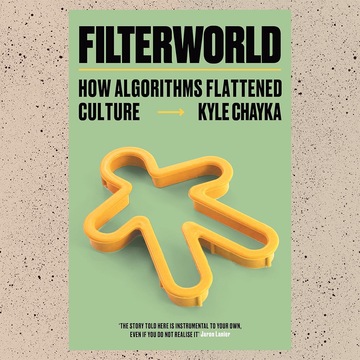In 2018, Andrew Sean Greer was changing an incontinent pug’s rhinestoned diaper at a Tuscan writers residency when he learned that he'd won the Pulitzer Prize. At first, he thought it was a practical joke; comic novels like Less, his rollicking romcom about ageing writer Arthur Less and his international misadventures, don’t win Pulitzer Prizes. But it was no joke—comic novels, it turns out, are a serious, life-changing business. The stratospheric success of Less changed Greer’s life, then did the same for thousands of readers; in the years since its release, they’ve flooded his Instagram DMs with touching messages of gratitude. “I think people resonate with the joy and freedom of the book, despite all of Less’s troubles,” Greer tells Esquire.
Everyone’s favourite Minor American Novelist is back for more in Less Is Lost, a beguiling sequel bursting with just as much absurdity, heartache, and laugh-out-loud exuberance as its predecessor—but this time, it’s all happening stateside. Dogged by financial crisis and the death of his former lover, Less sets out across the American landscape with nothing but a rusty camper van, a somber pug, and a zigzagging itinerary of literary gigs. His scrapes with flooded communes and mistaken identities evoke belly-aching laughter, but along the way, he’s forced to confront hard truths about his estranged father, his strained relationship, and the enigmas of American life. Our reluctant hero blunders his way into a cascade of disasters, but the more lost Less gets, the closer he is to being found. As an old lover advises him, “Go get lost somewhere, it always does you good.”
Rambunctious and life-affirming, Less is Lost is a warm bear-hug of a book, and a winsome reminder of all that fiction can do and be. As Greer writes of novelists, “Are we not that fraction of old magic that remains?” Greer spoke with Esquire from his home in San Francisco about the wild ride, from his own RV adventures to the future of Arthur Less. (This conversation has been edited for length and clarity.)
ESQUIRE: Walk me through the origin story of Less is Lost. When did it become apparent that you weren't finished with Arthur Less, and he wasn't finished with you?
Andrew Sean Greer: After Less, I started a new book about a road trip across America. I wrote about a hundred pages, which were just awful. I thought, "If only I already had a pre-made ridiculous character and a great narrator. What if I just made it into an Arthur Less book?" Once you find a way to tell the story, there's no turning back. Then I had to admit to my agent that I was writing a sequel. Her first response was, "You can't do that. You can't write a follow-up to a Pulitzer Prize-winning novel." I said, "Updike did it." She was ultimately very supportive.
ESQ: Back in 2018, you told me that you’d set yourself a challenge with Less: the challenge of writing about joy. Was there another challenge on your mind this time around?
ASG: This sounds too grand, but I wanted to write about my country. I wanted to write about America, or at least my experience of it. Even before I wrote either version of this book, after the 2016 election, my immediate reaction was: "I think I don't understand this country." So I rented an RV and started driving through the Southwest; a year later, I did it again in the Deep South. That's what I was trying to capture here. It doesn't look as grand as that on the page, I hope. But that was my thinking.
ESQ: What were the strongest impressions of those RV trips?
ASG: My misadventures are not the same as Less's. I didn't actually flood a commune. The most memorable impressions were the two places I visited in the Southwest: Slab City, California, and Arcosanti, Arizona. Both struck me as utterly American places. Lawless, but beautiful. You're on your own, but we're also in it together. That conflict really set the mood for what I was writing.
ESQ: What was the moment on these trips that took you most outside your comfort zone?
ASG: Going into rural bars in the Deep South. I really had to work up my nerve to go through those doors. When the bars had no windows, I didn't know what was going to be inside. I told myself, "It's going to be fine. Just buy a beer and lay low." And it was fine. Shockingly, I found that everyone told me their life story within two minutes. Even a woman pouring coffee for me—I’d ask, "Are you from around here? Tell me about how that's been." She'd say, "Well, I had a baby really early. That's why I'm here. But I'm finishing college now." There was a police officer who pulled me over for running a stop sign; he told me his story and I got out of the ticket. Everyone was dying to tell a stranger this thing in their life that they were proud of or regretted. It was very moving. At that time, there was an accusation that the Left had lost empathy with rural communities, and that’s how Trump was elected. I'm not sure that's how we all feel now. But at the time, I thought, "Well, I don't lack empathy. So let me give it a go." It was moving because I was open to that. I wasn't full of rage. I didn't talk politics. I just thought, "I want to meet some people I haven't met before."
ESQ: What was the point at which your research trip alchemised into a novel?
ASG: I sat with the notes I took. I was alone, which is the best way to take notes. You pay attention rather than trying to see what your friend is ordering and wondering if you want that, too. You just pay attention to the room and the people a lot better. At night, I’d be alone in my RV trying to think of how this all added up to a funny story. There's a lot that ended up on the cutting room floor. What you want in a novel is for everything to point in the same direction. That's the hard thing. You're like, "This is a great story, but what does it have to do with my novel?" A lot of those didn't make it. With those that did, it was a challenge to turn hard things into funny stories, but that's my job.
ESQ: Early in the book, we meet a writer who asks, "What if this whole idea of America is wrong?" It's a provocative question. Having traveled to all these places, having seen the things you've seen, how would you answer it?
ASG: I’m not the only one who thinks we have a basic flaw in this country. Just look around—nobody else has duplicated our version of democracy. We made a lot of mistakes that now seem like holy errors which can't be changed, like the electoral college. I do think it's bizarre that we have all of these different states bound together. We just kept adding to them until now, when we refuse to add any more, like Washington D.C. or Puerto Rico. We look at the fifty states and think, "That's a tough experiment. I wonder if it's going to hold together." I’m optimistic, but it's a little terrifying. Honestly, who on the Left or Right doesn’t have friends who say, "Let's just break off California," or "Let's break off Texas." That desire to do things our own way and not have to compromise with Mississippi or New Hampshire—it's frustrating. We ultimately have very conflicting utopias. It’s hard for me to think of a future where we're going to be in it together because I can’t remember a past where that happened.
ESQ: During Less’s adventures across America, he often experiences a sense of otherness, especially as a gay man. You write, "It feels ordinary to Arthur Less not to belong." But at the same time, whenever he enters an unfamiliar place, he's often forced to reckon with his white privilege. As our narrator asks, "Don't men like Arthur Less always end up safe?" What about that tension between otherness and privilege was interesting to you?
ASG: It’s something I noticed in my travels. I'm a neutral presence; people talk to me. I thought, "Now, why is that?" Yes, I'm a gay man. They usually recognise that wherever I'm going. But I'm a tall, middle-aged, super white guy. It was clear that this gave me a privilege. There are other people who would survive entering those bars, but they might be damaged by those environments in ways that I wasn’t. Just before I started this book, I talked about it at a writer’s colony. There was a great African-American writer who said to me, "Don’t make this a book about a white guy meeting a lot of brown people and learning something about himself. We don't need more books like that. I would love to read a book about whiteness—that's what's baffling." I said, "That's true. I would love to do that." In the book, a few characters share the fables of their ancestry, which are the documents of their whiteness. They're all ridiculous. Less's is the most ridiculous of them all.
ESQ: Even the names are ridiculous—Prudent DeLess, Parley Cant, Walloon!
ASG: Isn't it ridiculous? Cotton Mather or Learned Hand—these are real names. It's a ridiculous ancestry. With Less’s ancestor Prudent, I chose carefully. I thought, "Prudent. That's what he certainly isn't."
ESQ: Nowhere is Less’s discomfort more apparent than in his visit to a homestead where enslaved people once lived. How did you find the comedy in such an improbable setting?
ASG: In the South, you feel it around you. Something terrible happened here. On my trip, I visited three homesteads. One was very much, “Look at this beautiful house and the beautiful white people who lived here.” Another was a confrontation with the history of slavery—that was chilling, like visiting a concentration camp. I thought, "None of this is funny. This is the most horrible thing I've ever had to confront about myself and my people, who I know owned slaves." Then I went to one where they did exactly the kind of switch you see in the book. I thought, "This is funny," because what's funny is us on the tour and our expectations. At the other places, we went in with an expectation that was met. At this place, we went in expecting to learn about cotton, and we left with a totally different experience of being implicated. I watched the terror and anxiety in myself and in the people around me. I thought, "This is what's funny." It's when you decide to laugh that you can turn hard things into something else. I hope it's revelatory for the reader. I hope it makes them think or plants something inside of them.
ESQ: Both Less and Less Is Lost are very playful about the artifice of storytelling. In Less Is Lost, you observe, “Novelists, with their love of structure and language and symmetry… are frequently mistaken about the people who inhabit the actual world.” What, in your experience as a novelist, have you mistaken about the people who inhabit the actual world?
ASG: I’ve often made this mistake. Michael Cunningham once told me, “You have to keep in mind that every character who shows up, no matter how small, is showing up from another story where they're the main character.” You have to treat them that way, both from a moral point-of-view and a writing point-of-view. That's the only way they'll come across as real to the reader and make it persuasive. You have to be careful with every police officer and every cocktail server on the sidelines. I think I've been a little lazy with that in the past. This time around, I really tried to pay attention.
ESQ: This was your first time writing a sequel to a literary novel. What were the surprises and the challenges?
ASG: One thing was knowing that people would read it. That's not something I'm used to. I usually write into the void. This one, I knew I wasn't writing into the void because I get Instagram messages every day from readers of Less telling me what it meant to them. I knew I would necessarily disappoint some of those readers because it's a different book. In some ways, it’s more serious and layered, though it's just as ridiculous and full of pratfalls and puns. I worried that some people might not get the same thing out of it, and they're expecting exactly the same. That weighed on me. But the pandemic erased that because I was just me, alone in a room with a bottle of gin.
ESQ: Tell me more about these Instagram messages. What are people saying?
ASG: They say really moving things. It's every kind of person from all over the world. There’s someone very similar to me, a middle-aged, gay, white man in the United States saying how much this book meant to him—he'd never seen himself written about in this way before, and it was defining for him and his friends. Then there’s a young woman in India who felt that she'd never read something so exuberant and loving, and it was liberating for her, in a way. I think people resonate with the joy and freedom of the book, despite all of Less’s troubles.
ESQ: I’m reminded of one of the other challenges you set for yourself with Less: writing a happy ending. You’ve pulled it off again in Less Is Lost, to miraculous effect. Was it any more or less challenging this time around?
ASG: It was much more challenging because I couldn't pull off the same trick again. I had to think of another way. In fact, my first draft had a very different ending. My editor was happy with it, but I thought, "This isn't right. I have to do something else entirely." It’s a different literary trick of focusing much more on the narrator and leaving Less behind for a moment. That felt right to me. I wanted the same sense as in Less of understanding what's valuable and doing whatever it takes to get it. It was thrilling to write.
ESQ: You’ve now written two novels in this highly comic mode. Is that where you want to stay?
ASG: This is where I want to stay. Maybe not as slapstick. My next book is going to have fewer “wake up on a platform having flooded a commune” moments. But I think I’ve found a new way of talking about hard things. Before, I would go directly at them, and there was always the danger of being sentimental. In comedy, I can go at them from a different angle, and sentiment isn't the same danger. I can go further. Right before it gets sentimental, it becomes funny.
ESQ: This is something I think about often with fiction: sentiment versus sentimentality. We’re reluctant about sentimentality, but I think it's worth risking sentiment.
ASG: I think it is. One of my great teachers was a Western writer, William Kittredge—he was a rancher and a cowboy, but he was the one who told me, "If you’re not risking sentimentality, you’re not even in the ballpark." I thought, "If this guy is telling me to be sentimental, then it must be true." The trick is to get close to the flame without burning the reader, because they reject it if it gets goes too far. That's always the hard part for me. I need an editor or a good friend to say, "You don't need this part at all."
ESQ: Is there any chance of this becoming a Less trilogy?
ASG: A full Rabbit, as a friend once said. My next book is not about Arthur Less. That’s all I can say. But for me, these Less books are such a great way of taking things from my experience, putting them on a character that’s not precisely like me, and writing about it all from another character's loving, chiding point of view. I’ve found this to be a very useful way to get at some hard things. In the future, I might come across a topic that I just can't tackle any other way. Then it would be a pleasure to bring him back.
ESQ: He's got to go to Antarctica next. He’s been everywhere else.
ASG: That’s where my imagination fails me. Outer space? What else could I think of? Maybe I’ll come up with something.
Adrienne Westenfeld is the Books and Fiction Editor at Esquire, where she oversees books coverage, edits fiction, and curates the Esquire Book Club.
